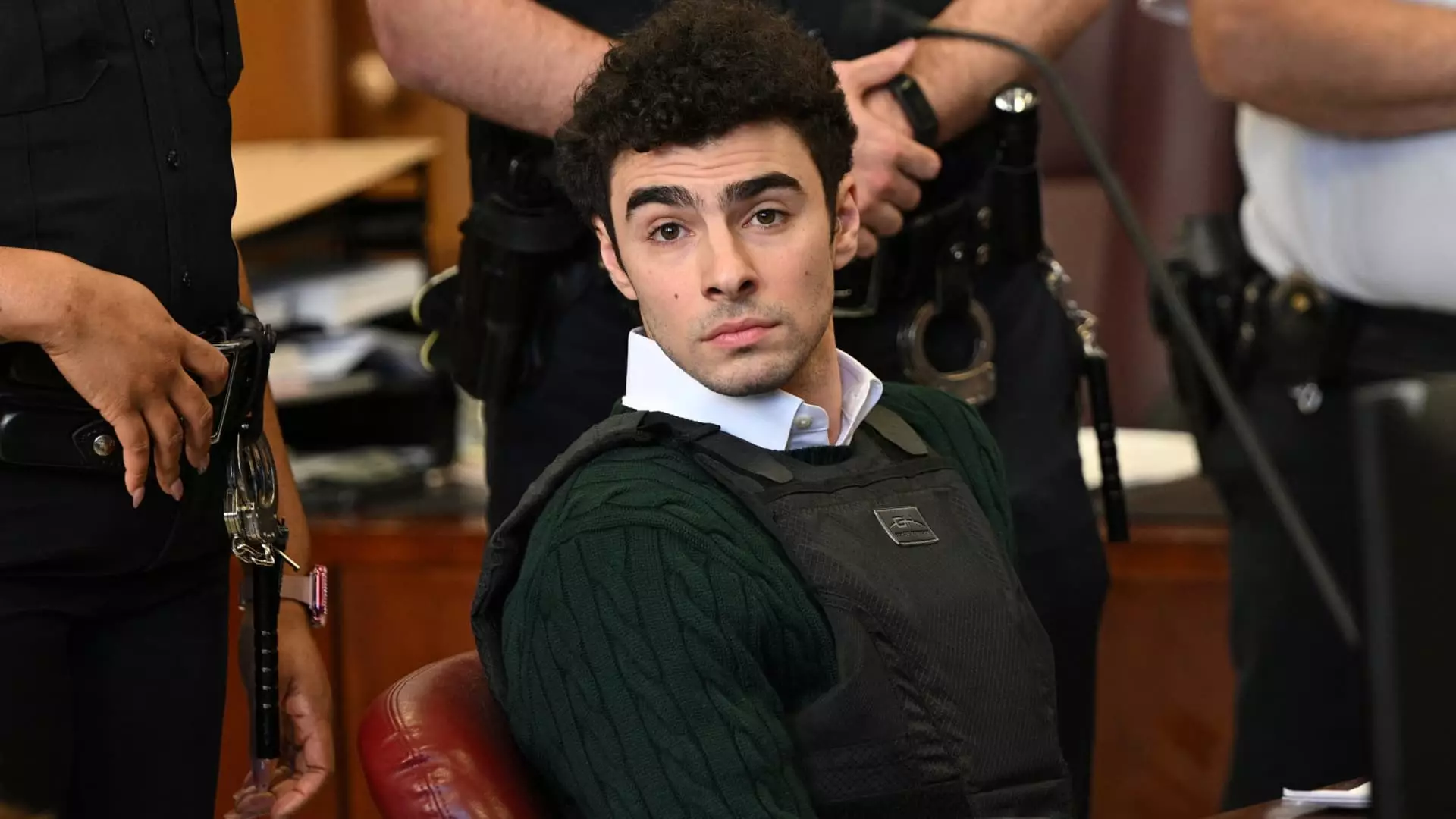The tragic killing of UnitedHealthcare CEO Brian Thompson has sent tremors through the health industry and ignited intense debates about ideological extremism in America. On December 4, 2023, Thompson was shot dead as he approached the Hilton Hotel in Manhattan, a site bustling with investors eager to hear about UnitedHealth Group’s plans for the future. The accused, Luigi Mangione, a 26-year-old University of Pennsylvania graduate, does not simply stand charged with murder; he is at the center of a broader discourse that questions the alarming trajectory of dissent in modern society. His actions, allegedly rooted in an ideological vendetta against the health insurance sector, raise uncomfortable questions about the limits of political expression and the ramifications of violence as a means of protest.
Manipulated Narratives: Legal Armament and Public Sentiment
Prosecutors have stepped into the spotlight by announcing their intention to seek the death penalty against Mangione, alleging that his crime involved premeditation and a desire to spearhead an uprising against a perceived foe. U.S. Attorney General Pam Bondi labeled the murder a “premeditated, cold-blooded assassination” aimed not just at a single individual, but at a broader system that Mangione appears to see as corrupt. This characterization, laden with emotional appeal, resonates deeply with the public—a populace disillusioned by industry giants they feel have commoditized their well-being.
However, does the narrative being crafted around this case run the risk of glorifying violence as a form of political dissent? Mangione’s motives need careful scrutiny, as he allegedly expressed intentions to target an entire industry. In an age where frustrations over healthcare accessibility reach a boiling point, the risk lies in reducing complex societal issues to simplistic tales of good versus evil. It raises the question: Are we inadvertently sanctioning violence against institutions, however flawed, by framing them as adversaries in a battle for survival?
The Role of Law and Public Discourse
As this intricate case unfolds in New York’s federal courts, there looms a critical issue regarding due process and the impartiality of the judiciary. Mangione’s defense team claims that the prosecution’s public pronouncements have prejudiced potential jurors, which could undermine their client’s right to a fair trial. Judge Margaret Garnett has intervened, warning all parties against inflaming public opinion or clouding the judicial process with sensationalism.
By labeling Mangione’s actions as “terroristic,” rather than examining them within a framework that considers the social and political disencontent fueling such behavior, we risk alienating other, law-abiding citizens frustrated with the current state of healthcare in America. Failures of this magnitude highlight a fundamental flaw in our legal and political systems—a lack of nuanced discussion around the grievances that breed resentment.
Implications for Social Cohesion and the Future
The implications of this case stretch beyond the courtroom, exposing fractures in the societal fabric of the United States. The death penalty, a topic of heated debate, is now entwined with this case in ways that will resonate far beyond the specific acts of one individual. There is a pressing need for politicians, legal experts, and advocates to foster a healthier discourse on systemic issues affecting industries critical to the nation’s health.
We must ask ourselves whether we are prepared to confront the ideologies that manifest in acts of violence and what responsibility we have as a society to address those underlying issues. Will we continue to vilify an individual like Mangione while ignoring the broader narratives of disenfranchisement that may have contributed to his radicalization? Or will we invite a conversation that considers the discontent brewing beneath the surface? As the American public anxiously awaits the trial’s outcome, it becomes clear that resolving one man’s fate should compel us to evaluate the cultural contexts that lead to such extreme actions.
This case may well serve as a grim reminder that fostering safety and justice in society requires more than punitive measures; it demands empathy, understanding, and a commitment to addressing systemic failures that drive individuals to such desperate extremes.

Leave a Reply